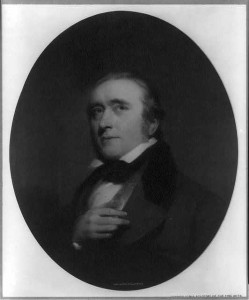The Dispatch philosophizes about the price of southern freedom from northern oppression – it didn’t take long for the Hebrews to forget about their Red Sea experience.
From the Richmond Daily Dispatch May 2, 1862:
Human nature.
–For the benefit of the people of the present day, we make the following extract from volume three, Macaulay’s History of England:
It is the nature of man to overrate present evil, and to underrate present good; to long for what he has not, and to be dissatisfied with what he has. This propensity, as it appears in individuals, has often been noticed both by laughing and weeping philosophers. It was a favorite theme both of Horace and Pascal, of Voltaire and of Johnson. To its influence on the late of great communities may be ascribed most of the revolutions and counter-revolutions recorded in history.
* * Down to the present hour, rejoicing like those on the shore of the Red Sea have ever been speedily followed by murmuring at the waters of Strife. The most just and salutary revolution cannot produce all the good that has been expected from it by men of uninstructed minds and sanguine tempers. Even the wisest cannot, while it is still recent, weigh quite fairly the evils which it has removed. For the evils which it has caused are felt, and the evils which it has removed are felt no longer.
Thomas Babington Macaulay was a British politician, writer, and historian who died in 1859.


